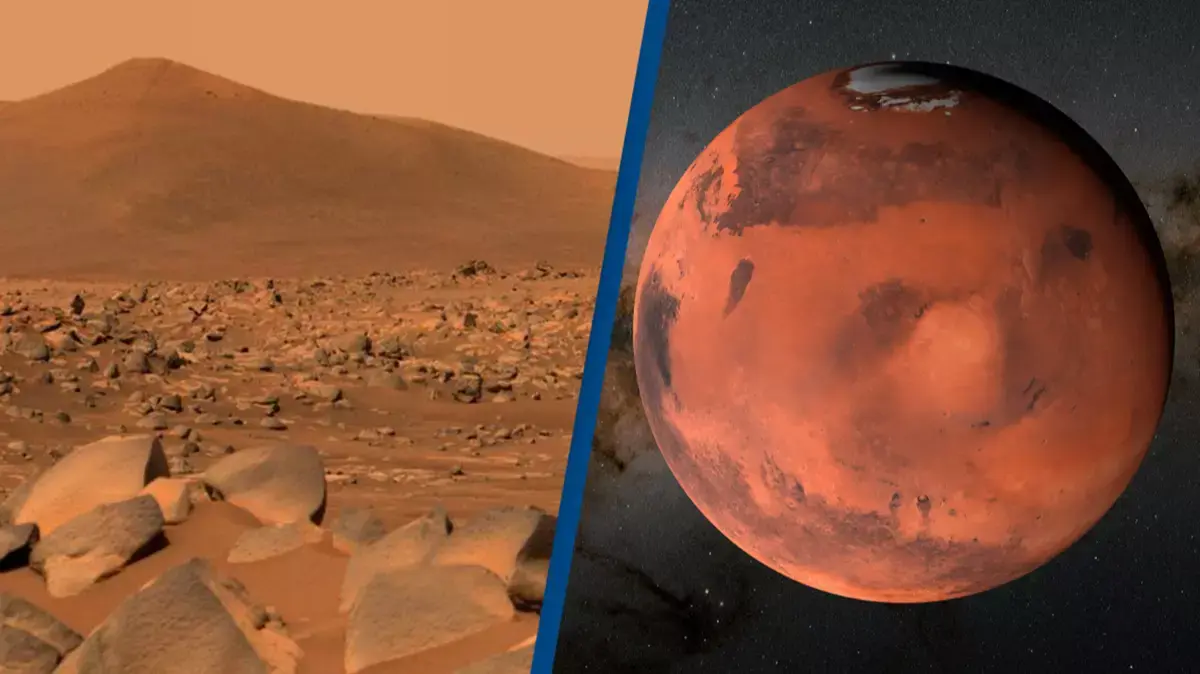They say the study was published in the “Advancing Earth and Space Science Journal”, without mentioning the authors, date, or title.
“Advancing Earth and Space Science” is the tagline of the American Geophysical Union, which has 24 journals—none of which are actually called the “Advancing Earth and Space Science Journal”. Presumably they were reading an article from one of those journals on the AGU website, and mistook the tagline at the top of the page for the journal name.
So does anyone know what study they’re actually referring to?
I’m pretty sure the whole article is bullshit. Not that the facts are incorrect, but that they aren’t researched and are likely just regurgitated content either generated by AI, or an editor that gets paid by the click. It’s all part of LADbible, which has never been a bastion of journalism to me.
Following the study, which was published in the Advancing Earth and Science Journal, the researchers found that it would not possible for humans to stay on Mars long-term.
They found that human exposure to radiation threats, including particle radiation from the Sun, distant stars, and galaxies, would exceed safe levels after four years on the planet.
Is this on the surface, or below ground? I thought it was a common assumption that until we get a magnetic shield up and do a bit of terraforming, any long-term habitats would have to be subsurface.
The article was disappointingly lacking, but would radiation still not penetrate Mars crust to a certain degree? Having the terraforming capability and magnetic shield in place within a 4 year period per individual seems to be the constraints implied.
It does, but a thick layer of matter is actually a pretty good radiation shield. Material is rated based on its “halving distance” - how many centimeters of stuff it takes for the radiation passing through it to be reduced by half. It never quite blocks all of it, but if you keep piling on additional halvings you can get the radiation levels down as small as you want.
This article has a table of values for how well various types of material blocks gamma rays, for example. Sand has a halving distance of 2.9 inches, and solid stone is 2.2 inches, so a couple of feet thickness will provide thousand-fold reduction in radiation.
Other kinds of radiation penetrate heavy elements better, but those kinds of radiation actually get blocked by light elements instead, such as the hydrogen in water. Mars has a relative abundance of water so you can incorporate that into your shielding too.
Probably the first inhabitants would live/sleep directly under their landing craft, or in the bottom half of it. You’ve got the whole of Mars as a shield on one side of you and about a hundred tons of steel, water, cargo, and fuel on the other.
It’ll penetrate anything to a certain degree, but my understanding is it’d block the vast majority and be safe.
Yeah but rock is a hell of a radiation shield too.
Lemmy needs to get some kind of sourcing rule for real.
Unilad? Really?
I don’t think Lemmy as a whole should have any sourcing rules, but I think some of the individual large communities might benefit from some sourcing rules. If a particular source is notoriously disreputable or poor quality, perhaps a community could vote on whether posting links to that source should be discouraged/forbidden?
What are your thoughts? Tagging the active mods (@Bitswap@lemmy.world and @otter@lemmy.ca) for their input as well.
I’m good with removing poor sources. I don’t think there’s a way to restrict domains on a community level (not yet anyways), but we can manually remove them based on reports
I’m torn. On one hand, I’m fine with removing poor sources as there is so much garbage on the internet it’s good to keep it from invading all spaces. On the other hand, there’s some good discussion here…but it could be mainly about how garbage the article is…
Overall, there have been very few reports for poor sources/spam/fake articles. So report it and we’ll start removing it. This means we should probably compile a “deny list” for inappropriate sources.
Compiling a “deny list” seems like a reasonable strategy. What would determine whether a source is added? Frequency of reports? Moderator discretion? Community vote? Could a source ever be removed from the list if its quality improves?
Great questions. Honestly, I haven’t given it much though.
What would determine whether a source is added?
Hard question. Open to suggestions. Even if a post starts off with a click-bait-y title/source, our member typically post concrete sources and more resources in the comments. The discussions are a large part of the community and, as of now, we are not overrun with bad sources/posts. I inclined to create a plan, but not implement until we have more issues. I’d like to say the community decides, but it could lead to endless polls about sources. Thoughts?
Frequency of reports?
Absolutely would be one metric. So far, we get very, very, very few reports in the Space community. Mostly the reports are to remove trolls or unrelated content.
Moderator discretion?
It would probably start here. Not sure I’m comfortable making those decisions, but this is likely the reality until we have more discussions and decide on a path forward.
Community vote?
This would be pretty great…just not sure how to go about it. I guess we could sticky a vote post for a few weeks or something.
Could a source ever be removed from the list if its quality improves?
We would have to have a mechanism for this. Times change. So do journals/magazines/periodicals.
I believe that Otter is correct, there is no way to restrict domains on a community level. So this would be managed by the mods supported by reports from the community.
Four years seems like a bizarre number, and the sources aren’t linked to. I feel like this may be AI generated nonsense
Another source for estimated radiation exposure on Mars: https://phys.org/news/2016-11-bad-mars.html
A newer study on the depth you need to be under martian soil: https://eos.org/editor-highlights/life-on-mars-estimating-radiation-risks-for-martian-astronauts (spoiler: trying to live at a depth of 30cm is bad)
Interesting study: https://www.ncbi.nlm.nih.gov/pmc/articles/PMC3797711/ (spoiler, you be fucked.)
I read and linked some things and my 3am napkin math didn’t produce any valid numbers in the 4 yr range. (My first thought is that radiation is going to the the least of your problems when visiting Mars, TBH.)
Four years??? I assumed humans would struggle to survive four minutes on Mars!
It’s like the bottom of the ocean in that way: with current technology, it’s not suitable for human or billionaire life.
I dunno, I feel like the billionaires are built different and they’d be able to handle it. Let’s just send them anyway and see what happens.
deleted by creator
Can we still go tho?
No, but Elon should.
deleted by creator
Yeah, most of the Mars missions planned are around 900 days round trip, around 500 of which will be on Mars waiting for the next transfer window. All of them include the astronauts being well shielded from radiation.
deleted by creator
That headline makes it sound like the human lifespan is <4 years
The MCR would like a word.













